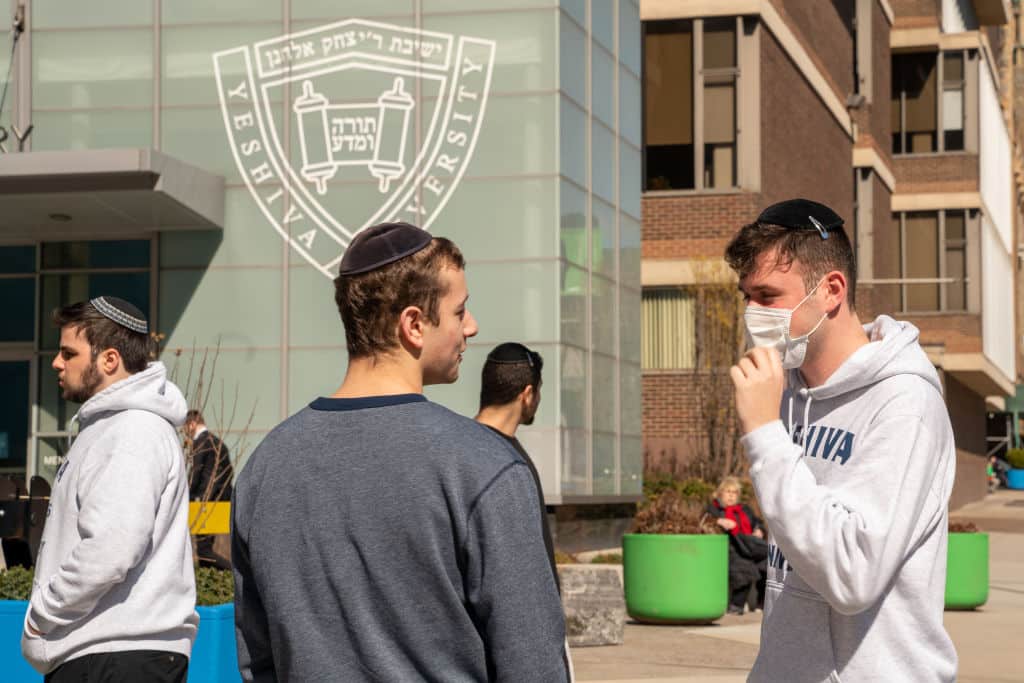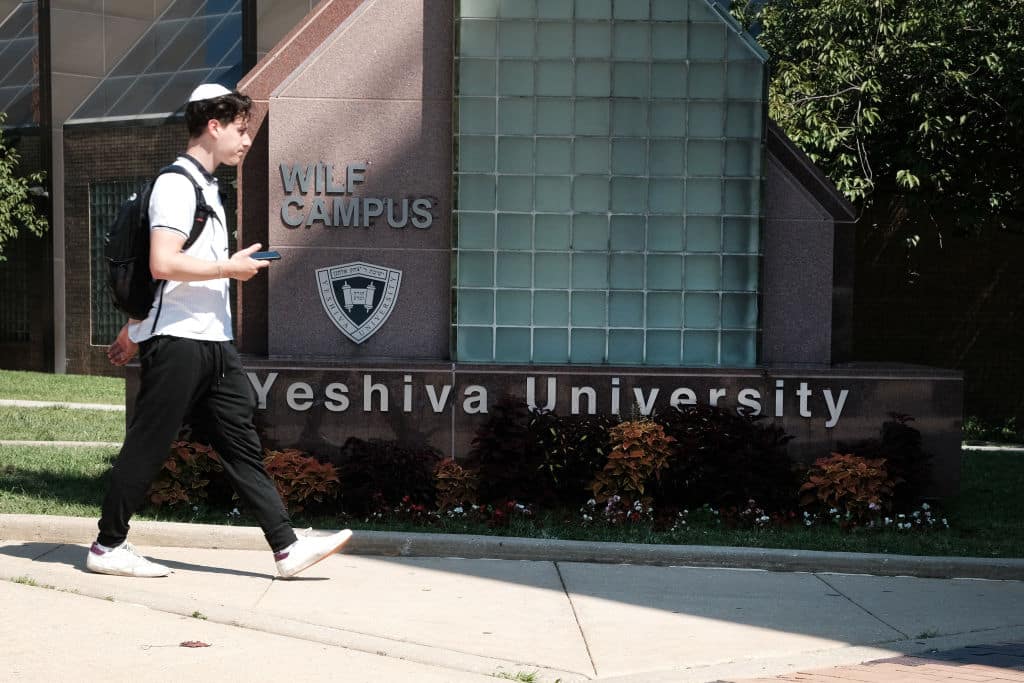People walk by the campus of Yeshiva University in New York City on August 30, 2022. (Spencer Platt/Getty)
A religious university has been granted permission by the Supreme Court to temporarily ban an LGBTQ+ student group.
Manhattan’s Yeshiva University was ordered by a state court in June to recognise an LGBTQ+ student group in a move that was celebrated by LGBTQ+ activists.
Staff at the Jewish Orthodox university were less happy with the ruling – they immediately vowed to appeal and applied for an emergency stay.
That was granted by Supreme Court justice Sonia Sotomayor on Friday evening (9 September), according to The New York Times.
Sotomayor, who has jurisdiction over the state court, confirmed that the earlier decision was “hereby stayed pending further order of the undersigned or the court”.
Her ruling suggests the Supreme Court could consider Yeshiva University’s case. If that were to happen, it would set out how similar cases should be treated by other courts across the United States.
Religious organisations – including the Roman Catholic Archdiocese of New York, the Church of Jesus Christ of Latter-day Saints and several others – have said they intend to file briefs expressing their support for Yeshiva University, The New York Times has reported.

Jonathan Berry, a lawyer representing the coalition of religious groups, wrote in court documents supporting Yeshiva’s case that religious autonomy must be protected.
“Without this protection of religious autonomy, movants and many other religious institutions may soon be forced to face the same impossible choice as Yeshiva University: abandon your faith or risk contempt or other legal penalties,” Berry wrote.
In its ruling in June, the New York court said Yeshiva was an educational institution rather than a religious one, meaning it had to comply with state laws on human rights.
Yeshiva University’s LGBTQ+ students want a ‘safe space’
Yeshiva president Rabbi Ari Berman claimed the university wants to welcome “all students, including those of our LGBTQ+ community”.
“We remain committed to engaging in meaningful dialogue with our students, rabbis and faculty about how best to ensure an inclusive campus for all students in accordance with our Torah values,” he said in a statement after Sotomayor’s ruling on Friday.
Eric Baxter, Vice President and senior counsel at religious law firm Becket, said: “Yeshiva shouldn’t have been forced to go all the way to the Supreme Court to receive such a common-sense ruling in favour of its First Amendment rights.
“We are grateful that Justice Sotomayor stepped in to protect Yeshiva’s religious liberty in this case.”
Kate Rosenfeld, a lawyer representing Yeshiva University Pride Alliance, said the students remain “committed to creating a safe space for LGBTQ students on YU’s campus to build community and support one another without being discriminated against”.
When the New York court ruled in the LGBTQ+ group’s favour in June, YU graduate and plaintiff Molly Measles said the decision was “monumental”. said the decision was “monumental”.
That initial ruling was also celebrated by Jewish Queer Youth, an Orthodox LGBTQ+ nonprofit.
“We could not be prouder of the heroic plaintiffs and the hundreds of queer Yeshiva students (past and present) who have persevered in making Yeshiva University an even better Jewish institution,” the group said.
